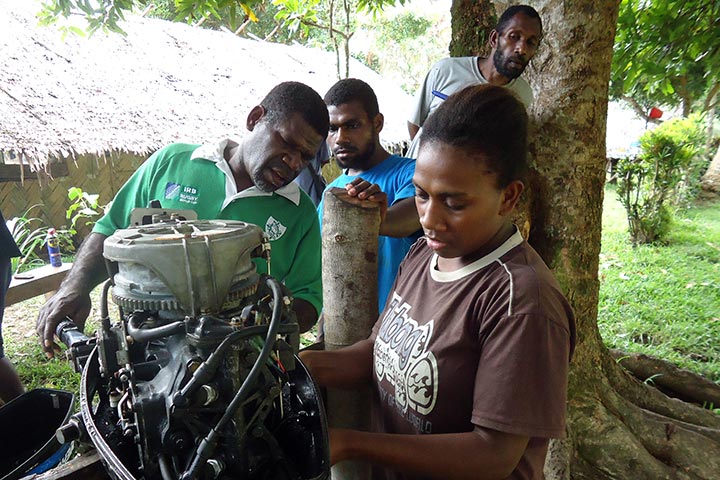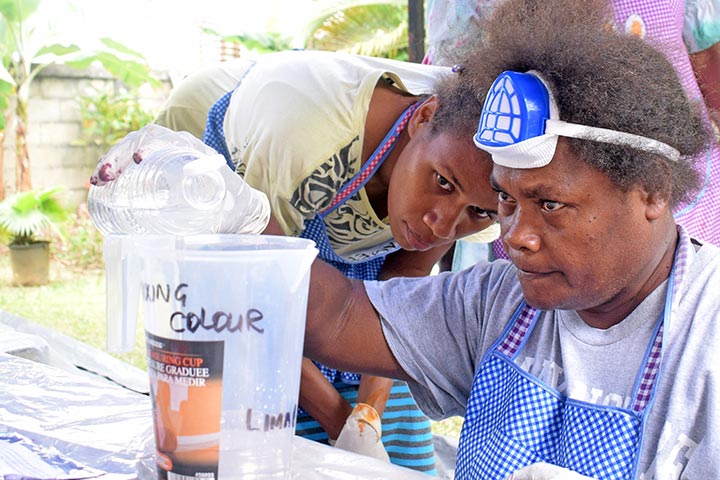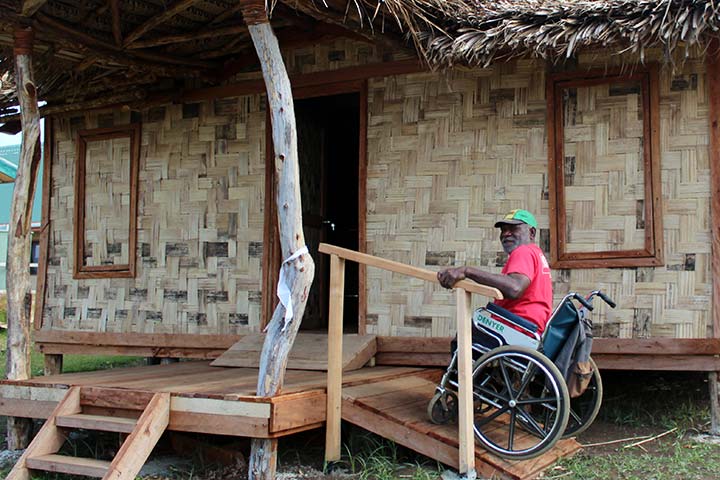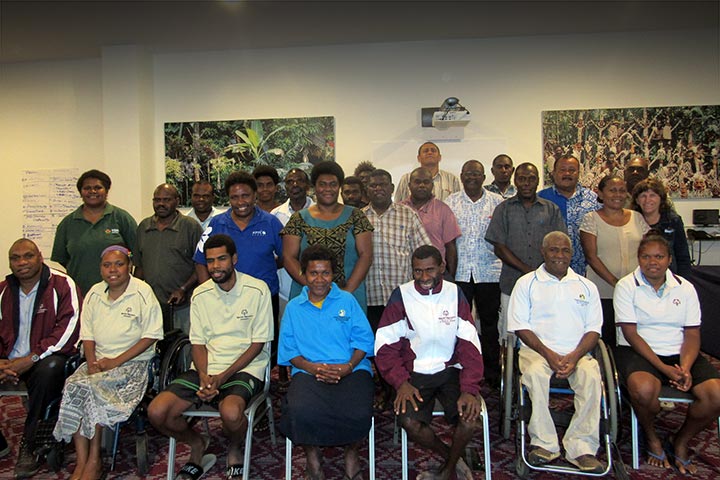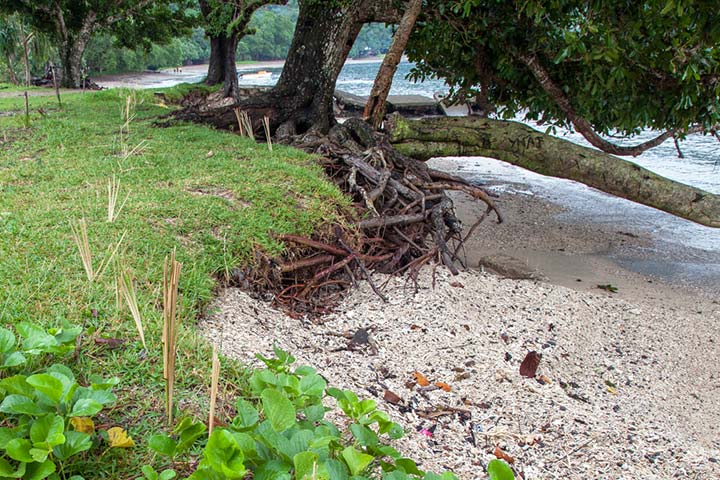Supporting social inclusion and climate change mitigation
The Vanuatu Skills Partnership integrates cross-cutting issues into its work streams, with a focus on gender equality, disability inclusion and climate change resilience.
Gender Equality
Women in Vanuatu are key contributors to society and are seen as those who hold families and communities together. While women are increasingly entering the formal economic sphere in Vanuatu, realising their full potential and contribution is hindered by a number of barriers and prevailing gender norms.
Despite high-level commitments from the government, there has been slow progress in achieving gender equality in Vanuatu. The Vanuatu Skills Partnership promotes and mainstreams gender equality through all activities and works with its partners to:
- Address barriers to participation in Skills Centre activities experienced by women
- Promote women’s leadership across the Skills system
- Ensure a family-friendly work environment in Skills Centres that allows male and female staff to achieve their potential and an appropriate work-life balance
- Strengthen partnerships for advocacy and research around women’s economic empowerment
- Ensure a responsive monitoring system to track and report on gender equality results
- Take steps to reduce participants’ vulnerability to violence and provide support to survivors of violence
The Partnership’s overall approach is outlined in its Better Balance Strategy. The Partnership is supported in the implementation of its Better Balance Strategy through a tripartite, co-investment partnership between the Ministry of Justice and Community Services (MoJCS) and the regional Pacific Women initiative.
Disability & Inclusion
Inclusion and equity are central to the approach of the Vanuatu Skills Partnership, which works towards enhancing the status of women and people with a disability.
Disability inclusion efforts by the Vanuatu Skills Partnership are guided by the twin-track approach, as outlined in the Australian Government’s Development for All strategy, and utilise both mainstreaming and disability specific approaches.
Mainstreaming efforts seek to identify and overcome barriers to participation by people with disabilities in all aspects of the Vanuatu Skills Partnership’s work and build access and inclusion across these. Mainstreaming requires strong collaboration with key stakeholders across a range of different sectors, professional development, and the joint identification of strategies to overcome barriers.
Disability specific activities promote equitable access by providing targeted support to identify and improve access to the particular accommodations and services required specifically by people with disabilities. These are often fundamental supports, without which inclusion might be challenging or even impossible, and can include provision of transport, accessible venues, a sign language interpreter, or caregiver support.
The meaningful engagement of people with disability is fundamental to the development of effective, appropriate and realistic mainstreaming and disability specific approaches.
The Vanuatu Skills Partnership works in close association with Vanuatu’s Disabled People’s Organisation (DPO), Vanuatu Disability Promotion and Advocacy Association, as well as with Vanuatu’s main service provider, Vanuatu Society for People with Disability, and the Government of Vanuatu’s disability focal point, situated within the Ministry of Justice and Community Services.
Climate Change Resilience
The livelihoods and social structure of the Ni-Vanuatu people are inextricably linked to the natural environment and its resource base.
Over 80 per cent of the population derive their livelihoods from weather-sensitive industries (agriculture, fisheries and tourism), and as such, any changes to weather, environmental services or availability of natural resources have direct impacts on livelihoods, well being and poverty levels.
The Vanuatu Skills Partnership has developed a Climate Change Strategy for the operations of the Ministry of Education and Training (MoET) Skills Centres.
A key aspect of this strategy is how the Skills Centres, working with their industry and departmental counterparts, mainstreams contextualised climate change adaptation and mitigation strategies into all relevant training activities across the tourism, creative industry and agribusiness sectors.
The Vanuatu Skills Partnership has a long history of stimulating institutional reform within the Government of Vanuatu and it continues to work at this institutional level with key partners on climate change.
This includes collaborating with organisations such as the Vanuatu Climate Action Network (VCAN) and the Vanuatu Business Resilience Committee (VBRC), to ensure that the skills sector is actively included within climate change planning and policy-making at national and provincial levels.




